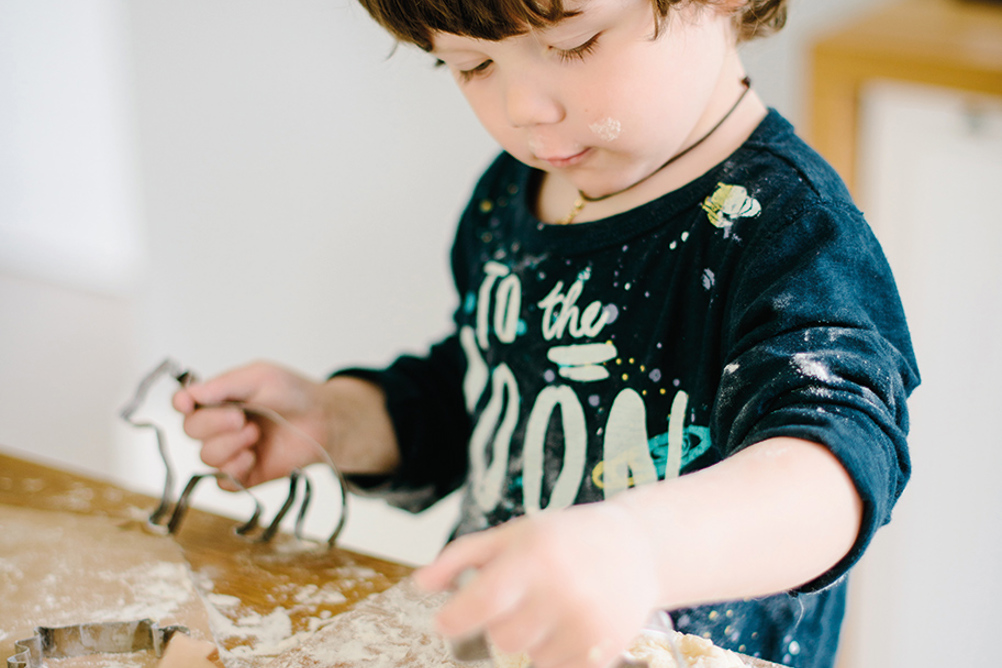
Cooking food alongside an adult has long been a traditional experience for young children. It is a great way for children to learn a range of skills and also to spend time with an adult. For some children, opportunities to cook in the home are limited, and so it is worth considering planning a series of fun cooking activities for your children.
BENEFITS
The benefits of learning to cook alongside an adult are significant. Most of the early years curriculum can be linked to cooking activities if wanted.
Health When children are involved in preparing food, they are more likely to try out new tastes and flavours. Children can become carrot converts or falafel fans, and so improve their chances of eating a more varied diet.
Language development Through cooking, children can learn new vocabulary spontaneously as they will often want to talk about what they are seeing and doing.
Physical skills Cooking helps children to practise a range of physical skills, particularly their hand-eye co-ordination. Movements such as peeling and grating also strengthen the hands.
Emotional development Children can develop a sense of pride and also feelings of competence when they cook. Time spent with the adult can also help to develop relationships. This means that cooking alongside a key person can be a useful activity when children first join a setting.
Mathematics Cooking provides genuine opportunities for children to count, measure and calculate.
Early science Cooking is rooted in science. Children can observe how different ingredients mix together, and also the effect of heat, including freezing on mixtures.
Understanding the world Cooking provides opportunities to talk about food production – for example, how fruit and vegetables are grown and where spices come from.
PLANNING A PROGRAMME
As the benefits for children’s development are so significant, you might want to consider taking a planned approach to cooking. This allows children’s skill level to be increased and helps them make connections between previous cooking experiences.
There are many ways to go about planning a cooking programme. You could look at different types of skill – for example, washing, tearing, mixing and cutting; or you could base it on the food itself – for example, dishes involving bread.
With one in five children aged between four and five years being either overweight or obese, it is important to use a cooking programme to introduce children to fruit and vegetables. You may also wish to focus on savoury foods rather than recipes that involve sugar.
For more information about healthy eating and portion sizes:
download Eating well for 1-4 year olds: Practical guide produced by the Caroline Walker Trust, www.cwt.org.uk/wp-content/uploads/2015/02/CHEW-1-4YearsPracticalGuide3rd-Edition.pdf
visit www.childrensfoodtrust.org.uk for information on the trust’s Eat Better, Start Better programme andVoluntary Food and Drink Guidelines for Early Years Settings in England: A Practical Guide.
BUILDING ON THE EXPERIENCE
There are many ways of building on children’s experiences of cooking. You might consider making a ‘recipe’ book with children about their experience containing plenty of photographs of them in action. You could also plan an outing to a supermarket, a greengrocer or a place where food is grown, such as an allotment. In the spring and summer, children might also like to have a go at growing some foods, including herbs, for cooking.
Consider also your role play and dough areas. Think about the props needed for children to act out their cooking experience.
HOME LEARNING
However we do it, it is important to pass on the message to parents and carers that cooking with their child is a fantastic shared activity. It might be that you develop a sharing service whereby you ask parents for recipes and send home the recipe of what the child has cooked.
If you decide to do this, remember to keep the cost and complexity of recipes to a minimum. You could also create step-by-step films of the cooking activity so that parents can see their little chefs at work.
You might also be able to invite some parents to come in and cook alongside their children.
TIPS
Preparation Make sure you have tried out the recipe first and have everything to hand.
Group size Keep the group size as small as possible. This way children can be truly involved and talk freely, comment and ask questions.
Practical matters Help children get into the habit of washing their hands before starting, and use cooking as an opportunity to talk about hygiene. Also make sure that surfaces are low enough so that children can stir, mix or cut easily. Ideally surfaces should be at hip height for a child.
Time Allow enough time so that children are not rushed and can practise the skills needed to cook. Take time to follow children’s lead as they talk and discuss. Don’t worry if they are not always talking about the activity.
Clearing away Use clearing away as a further learning experience. Encourage children to wash and dry up, wipe surfaces and also put rubbish in the proper bin.
[asset_library_tag 1386,Download the PDF]









